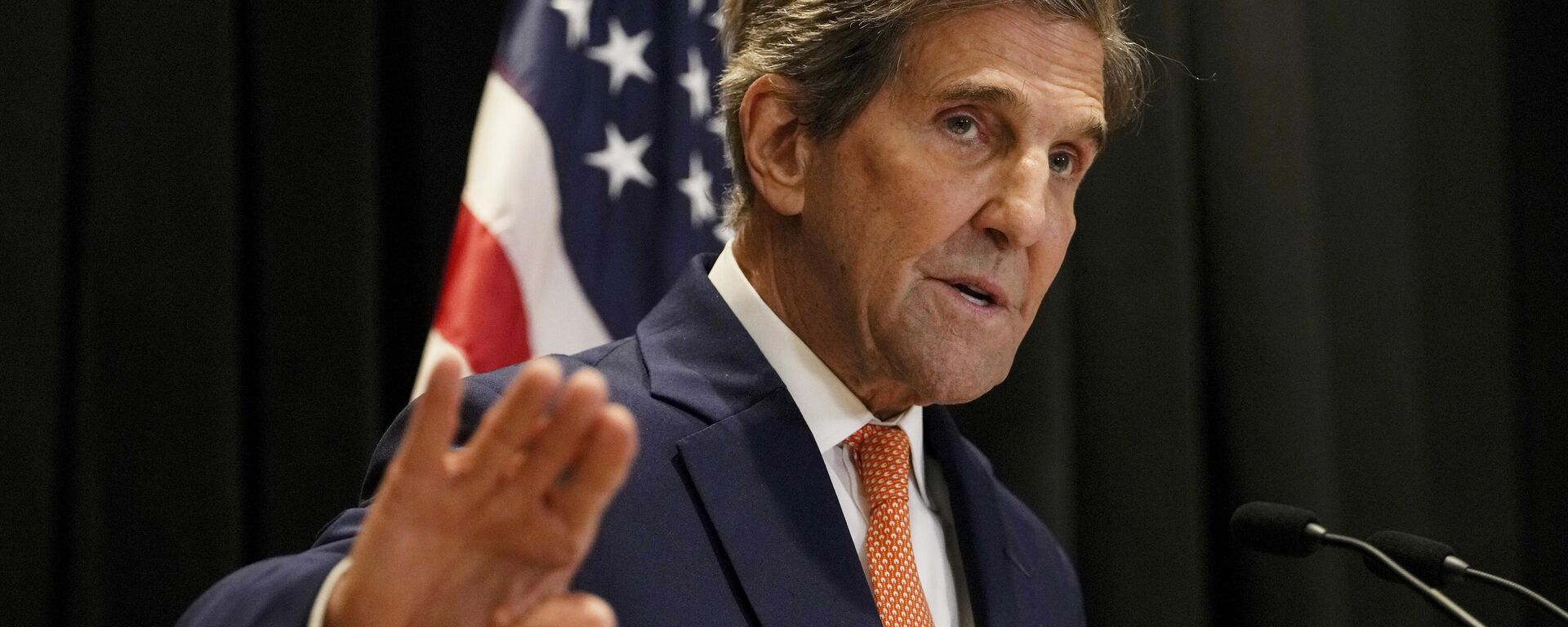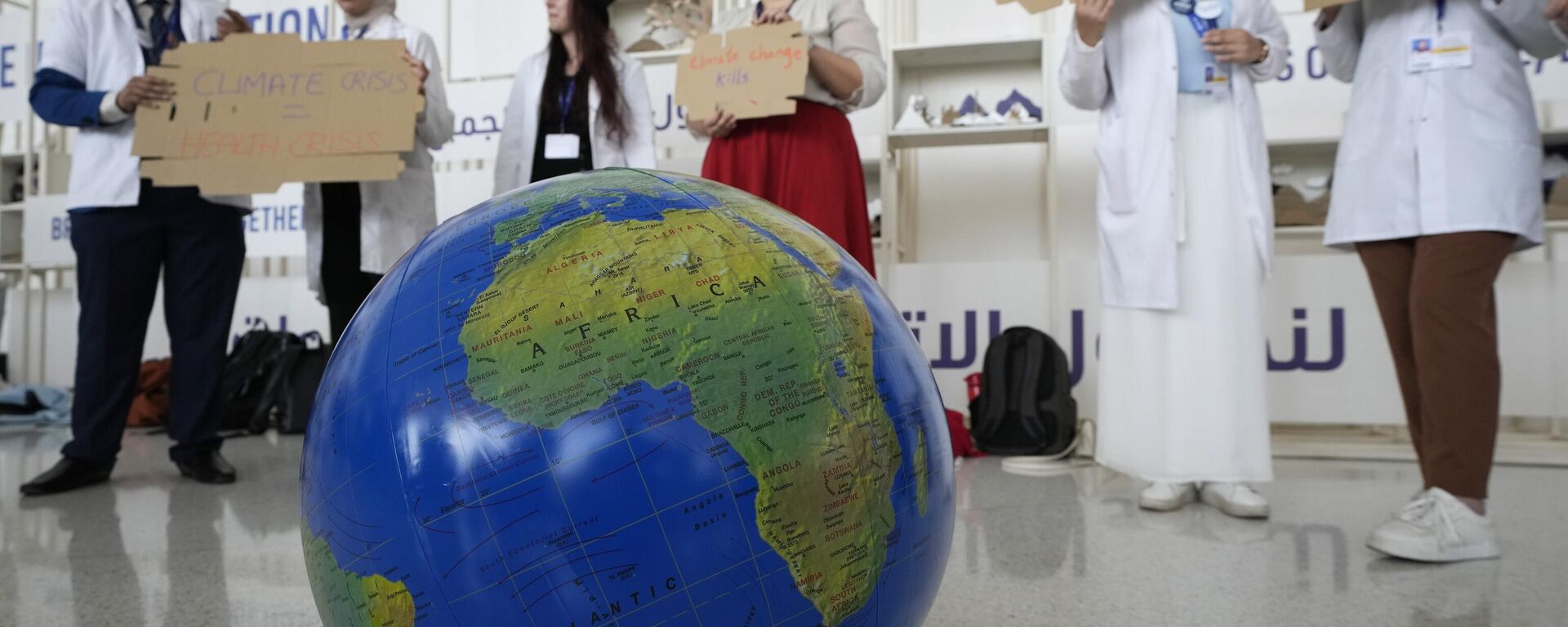https://en.sputniknews.africa/20231205/how-can-african-green-bank-initiative-help-the-continent-1063962375.html
How Can African Green Bank Initiative Help the Continent?
How Can African Green Bank Initiative Help the Continent?
Sputnik Africa
In November 2022, at COP27 in Egypt, the African Development Bank (AfDB) launched the African Green Bank Initiative as a viable and realistic solution to the... 05.12.2023, Sputnik Africa
2023-12-05T18:02+0100
2023-12-05T18:02+0100
2023-12-05T18:03+0100
egypt
african development bank (afdb)
cote d'ivoire (ivory coast)
benin
morocco
bank
banking
central bank
climate
climate change
https://cdn1.img.sputniknews.africa/img/07e7/0c/05/1063965138_0:156:3000:1844_1920x0_80_0_0_152dd81ebacdd5cf914258fa461dc0b2.jpg
The African Development Bank has already initiated the creation of four green banks in four African countries – Egypt, Morocco, Benin and Côte d'Ivoire - as an innovative response to the lack of climate finance at successive UN Climate Change Conferences (COPs).In 2009, at COP 15 in Copenhagen, Denmark, developed countries pledged $100 billion per year to help developing countries, including those in Africa, fight climate change, but this funding has been far from forthcoming. According to the United Nations, Africa is one of the regions most vulnerable to the effects of climate change, despite contributing two to three percent of global greenhouse gas emissions.These countries decided to establish green banks under the leadership of the AfDB to diversify their sources of financing and address the challenges of climate change in Africa, Dr. Nadia Mansour, an assistant professor at the University of Sousse, Tunisia, and a visiting scholar at the University of Salamanca, Spain, explained in an interview with Sputnik Africa.The academic also noted that the green bank initiative, supported by a $1.5 billion trust fund, "will compensate for the need for more climate financing from developed countries' non-respect for their financial commitments to developing countries."She also noted that the initiative was designed as part of the AfDB's efforts to increase Africa's access to international finance from the current 3% to 10% per year by 2030. Dr. Mansour added that the AfDB plans to launch green banks in Ghana, Mozambique, Tunisia, Uganda and Zambia in the near future.Tunisia's ExperienceA recent research paper published by Dr. Mansour, titled "Green Banks in Tunisia: Issues and Challenges," found that the North African country has made some progress in implementing green banking.In 2017, the Central Bank of Tunisia introduced environmental and social risk management guidelines for the country's banks and financial institutions, which positively changed green financial performance.The academic noted that the Central Bank of Tunisia has followed some "strategic priorities" over the past five years to promote green banking in the country.These priorities include supporting the competitiveness of the Tunisian economy by making markets more open, strengthening governance and reducing barriers to competition; promoting the economic inclusion of women, youth and people living in remote areas through private sector participation; and finally, strengthening the resilience of the financial sector and increasing access to finance.Dr. Mansour also said that in the short term, the Central Bank of Tunisia will seek to focus on reform opportunities, such as encouraging the involvement of local banks in the financing of renewable energy, developing green financial products (green bonds and green loans), and promoting investment in sustainable development through financial and fiscal incentives.Green Economy in AfricaDr. Mansour suggested that the green economy must be part of the strategies to ensure growth and human and natural development in Africa, as many African countries are already facing several problems (poverty, disease, food insecurity) exacerbated by the effects of climate change.She also said that the green economy is a source of growth and job creation, and that the opportunities concern all sectors of activity: agriculture, energy, industry, tourism, transport.The 20 23 United Nations Climate Change Conference, known as COP28, is being held in the United Arab Emirates from November 30 to December 12 and is anticipated to bring together more than 70,000 participants, including heads of states, international industry leaders, academics, experts, etc.
https://en.sputniknews.africa/20230907/us-refuses-to-pay-climate-reparations-despite-being-huge-polluter-1061935529.html
https://en.sputniknews.africa/20231203/cop28-africa-must-come-to-climate-change-talks-as-strong-partner-professor-believes-1063931923.html
egypt
cote d'ivoire (ivory coast)
benin
morocco
Sputnik Africa
feedback@sputniknews.com
+74956456601
MIA „Rossiya Segodnya“
2023
Muhammad Nooh Osman
https://cdn1.img.sputniknews.africa/img/07e7/04/0a/1058467512_0:0:1280:1280_100x100_80_0_0_ec723833bcbfcaed2e21952965ad99e4.jpg
Muhammad Nooh Osman
https://cdn1.img.sputniknews.africa/img/07e7/04/0a/1058467512_0:0:1280:1280_100x100_80_0_0_ec723833bcbfcaed2e21952965ad99e4.jpg
News
en_EN
Sputnik Africa
feedback@sputniknews.com
+74956456601
MIA „Rossiya Segodnya“
Sputnik Africa
feedback@sputniknews.com
+74956456601
MIA „Rossiya Segodnya“
Muhammad Nooh Osman
https://cdn1.img.sputniknews.africa/img/07e7/04/0a/1058467512_0:0:1280:1280_100x100_80_0_0_ec723833bcbfcaed2e21952965ad99e4.jpg
egypt, african development bank (afdb), cote d'ivoire (ivory coast), benin, morocco, bank, banking, central bank, climate, climate change, cop28 in uae, cop27 in egypt
egypt, african development bank (afdb), cote d'ivoire (ivory coast), benin, morocco, bank, banking, central bank, climate, climate change, cop28 in uae, cop27 in egypt
How Can African Green Bank Initiative Help the Continent?
18:02 05.12.2023 (Updated: 18:03 05.12.2023) Muhammad Nooh Osman
Writer/Editor
In November 2022, at COP27 in Egypt, the African Development Bank (AfDB) launched the African Green Bank Initiative as a viable and realistic solution to the lack of climate finance in Africa. The key initiative aims to establish numerous green banks across the continent over the next few years.
The African Development Bank has already initiated the creation of four green banks in four African countries – Egypt, Morocco, Benin and Côte d'Ivoire - as an innovative response to the lack of climate finance at successive UN
Climate Change Conferences (COPs).
In 2009, at COP 15 in Copenhagen, Denmark, developed countries pledged $100 billion per year to help developing countries, including those in Africa, fight climate change, but this funding has been far from forthcoming. According to the United Nations, Africa is one of the regions most vulnerable to the effects of climate change, despite contributing two to three percent of global greenhouse gas emissions.
These countries decided to establish green banks under the leadership of the AfDB to diversify their sources of financing and address the challenges of
climate change in Africa,
Dr. Nadia Mansour, an assistant professor at the University of Sousse, Tunisia, and a visiting scholar at the University of Salamanca, Spain, explained in an interview with
Sputnik Africa.
"The term 'green bank' emerged, defined as a bank that seeks to finance green projects (with a limited carbon impact) as part of its activities. In other words, the bank's objective is to contribute to combating global climate change rather than making a financial profit," she said.
The academic also noted that the green bank initiative, supported by a $1.5 billion trust fund, "will compensate for the need for more climate financing from developed countries'
non-respect for their financial commitments to developing countries."
She also noted that the initiative was designed as part of the AfDB's efforts to increase Africa's access to international finance from the current 3% to 10% per year by 2030. Dr. Mansour added that the AfDB plans to launch green banks in Ghana, Mozambique, Tunisia, Uganda and Zambia in the near future.
"It is a crucial initiative that could be a realistic solution to the problem of financing green projects in Africa. It will also encourage other banks on the continent to follow suit," she said.
A recent
research paper published by Dr. Mansour, titled "Green Banks in Tunisia: Issues and Challenges," found that the North African country has made some progress in implementing green banking.
In 2017, the Central Bank of Tunisia introduced environmental and social risk management guidelines for the country's banks and financial institutions, which positively changed green financial performance.
"Most Tunisian banks are engaged in sustainable finance and have developed green banking strategies. In parallel, the Central Bank of Tunisia has developed partnerships with different international organizations and associations to establish green banking strategies," she told Sputnik Africa.
The academic noted that the Central Bank of Tunisia has followed some "strategic priorities" over the past five years to promote green banking in the country.
These priorities include supporting the competitiveness of the Tunisian economy by making markets more open, strengthening governance and reducing barriers to competition; promoting the economic inclusion of women, youth and people living in remote areas through private sector participation; and finally, strengthening the resilience of the financial sector and increasing access to finance.
Dr. Mansour also said that in the short term, the Central Bank of Tunisia will seek to focus on reform opportunities, such as encouraging the involvement of local banks in the financing of renewable energy, developing green financial products (green bonds and green loans), and promoting investment in sustainable development through financial and fiscal incentives.
Dr. Mansour suggested that the
green economy must be part of the strategies to ensure growth and human and natural development in Africa, as many African countries are already facing several problems (poverty, disease, food insecurity) exacerbated by the effects of climate change.
She also said that the green economy is a source of growth and job creation, and that the opportunities concern all sectors of activity: agriculture, energy, industry, tourism, transport.
"Green Investment Facilities are hybrid financing instruments with the technical and financial capacity to attract climate finance from international and local investors," Dr. Mansour said. "The hybrid nature of these mechanisms means that they overcome traditional constraints on investment, thereby enhancing the value of potential climate projects, making them more attractive to lenders and less risky for players in the climate finance sector."
The 20 23 United Nations Climate Change Conference, known as
COP28, is being held in the United Arab Emirates from November 30 to December 12 and is anticipated to bring together more than 70,000 participants, including heads of states, international industry leaders, academics, experts, etc.




